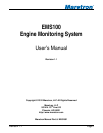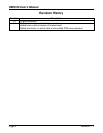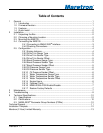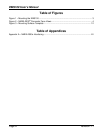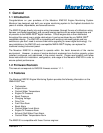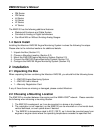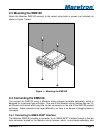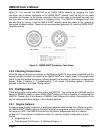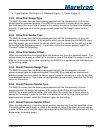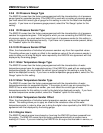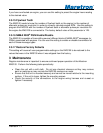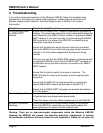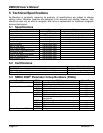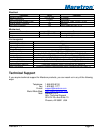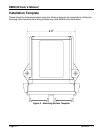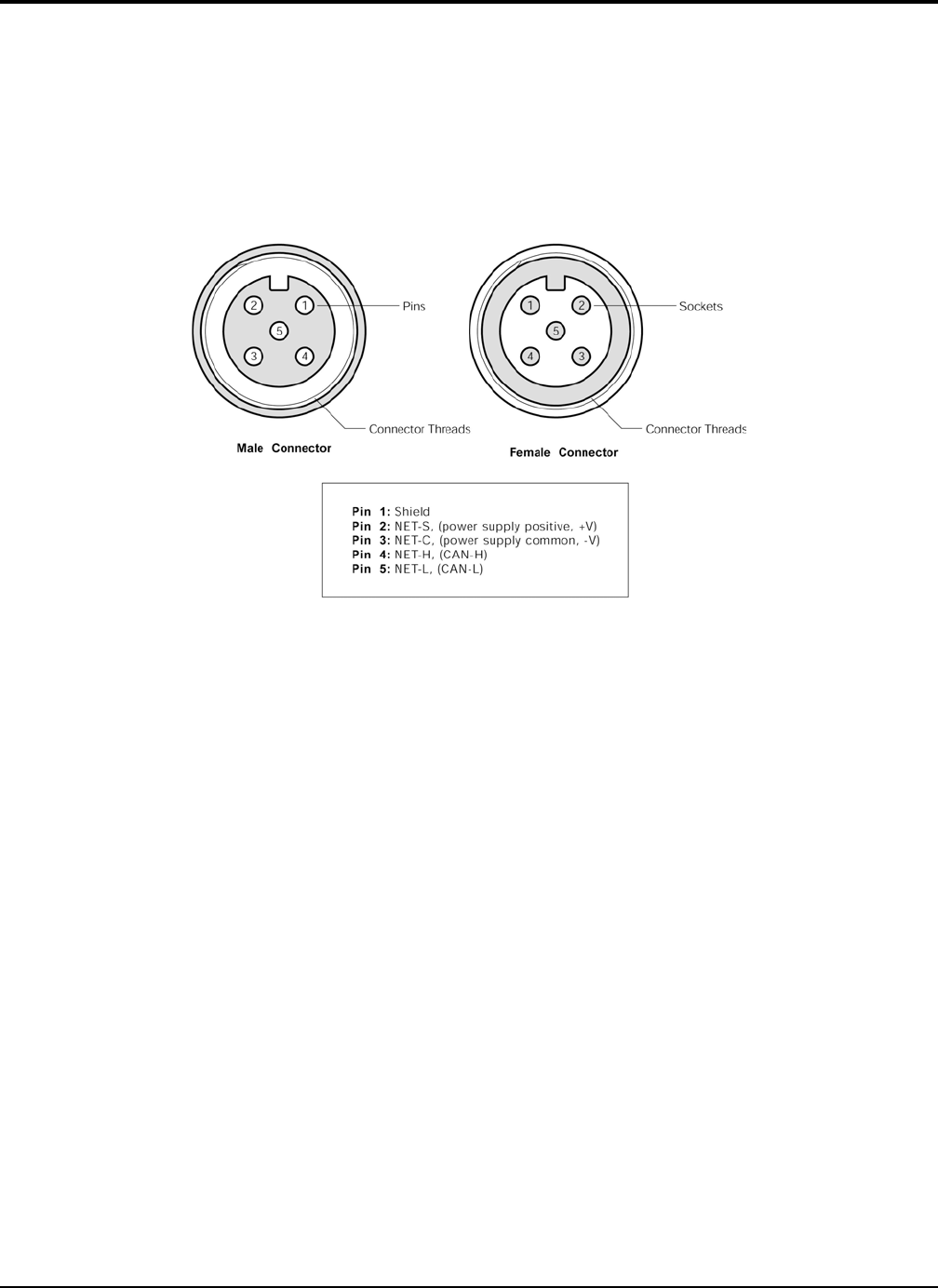
EMS100 User’s Manual
Figure 2). You connect the EMS100 to an NMEA 2000
®
network by plugging the male
connector into a female receptacle of the NMEA 2000
®
network (note the key on the male
connector and keyway on the female connector). Be sure the cable is connected securely and
that the collar on the cable connector is tightened firmly. The EMS100 is designed such that
you can plug or unplug it from an NMEA 2000
®
network while the power to the network is
connected or disconnected. Please follow recommended practices for installing NMEA 2000
®
network products.
Figure 2 – NMEA 2000
®
Connector Face Views
2.4.2 Checking Connections
Once the engine harness connections to the Maretron EMS100 have been completed and the
engine harness has been connected to the NMEA 2000
®
bus, supply power to the engine and
check to see that engine information is being properly transmitted by observing an appropriate
display. Refer to Section 4, “Troubleshooting”, if no engine information appears, otherwise
proceed to Section 2.5 entitled “Configuration”.
2.5 Configuration
There are several configurable items within the EMS100. You configure the EMS100 using a
Maretron DSM250 display or other NMEA 2000
®
display unit that is capable of configuring the
EMS100. Please refer to the Maretron DSM250 User’s Manual for details. Descriptions of the
various configurable items appear in the following sections.
2.5.1 Engine Instance
In order to allow display equipment to distinguish between data coming from different engines,
the NMEA 2000
®
network requires that each engine be assigned a unique instance number in
the range of 0-252. The EMS100 comes from the factory programmed with an instance
number of 0. Conventions for instance numbers for common engine configurations are as
follows:
• Single Engine = 0
Page 4 Revision 1.1
• Dual Engines: Port Engine = 0, Starboard Engine = 1



